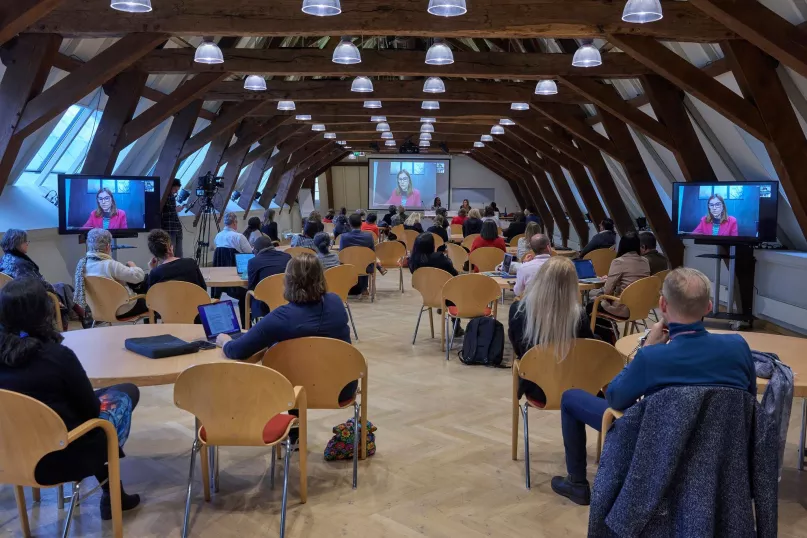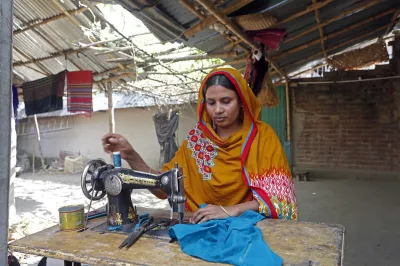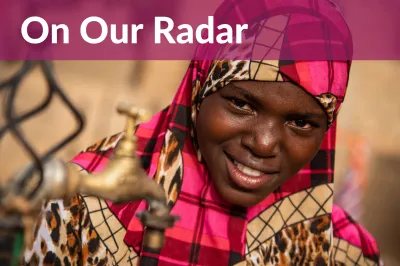Women Are Underrepresented at All Levels of The Global Financial System

On Nov. 17, 2022, FinEquity teamed up with Oikocredit, a social investor, for a panel discussion on why promoting gender balance and diverse leadership at all levels of financial services is key to creating gender-equitable financial systems. The discussion was part of the 2022 European Microfinance Platform (e-MFP) week, which focused on financial services that work for women and included a prize for an organization showing innovation in gender mainstreaming.
Adama Bah, Social Performance Analysts at Oikocredit, shared evidence from a survey of Oikocredit’s network showing that women’s representation in leadership appears strongly correlated with proxies of a financial service providers (FSPs)' ability to serve their female clients and reach their desired outcomes. Women’s representation matters at all levels within an organization’s leadership (especially at the board and senior management level) to ensure diverse perspectives on both products and processes to serve clients are voiced. However, change within the Oikocredit network has been relatively slow.
Noame Ottiti, from the University of Agder in Norway, reminded us that female employees remain globally underrepresented in microfinance, despite evidence that female loan officers help increase access to finance for women and facilitate good repayment behavior. Isabel Baggio, CEO of Banco da Familia in Brazil, shared that when more women provide input and make decisions about markets and product development within FSPs, all levels of the organization are more likely to be aware of women as an underserved market and actively work toward understanding and serving them. She proudly shared that as of Nov. 2022, about two-thirds of senior management and board members of Banco de Familia are women, over 80% of staff are women and 55% of the bank’s clients are women. Mwangi Githaiga, Managing Director of Kenya Women Microfinance Bank (KWFT), reported that women comprise two-thirds of KWFT’s board and senior management. In March 2022, KWFT became the first microfinance institution in Africa to sign the WEPs - Women's Empowerment Principles, demonstrating its commitment to women’s empowerment in the workplace, marketplace and community.
In small groups—online and in the room—we chatted about how gender norms might create barriers and prevent women from working for a financial service provider. For example, Carine Roenen from Fonkoze said we need to create more female employee “role models” who can demonstrate that women have a role in the financial sector. Staff from a microfinance institution in the Philippines also said that female employees were more likely to leave than men unless the workplace has proper strategies, incentives and policies to retain women employees and promote an inclusive workplace culture.
"If having a gender-diverse workforce helps FSPs do well for both their clients and themselves, how can they hire, retain and promote women staff at all levels of the institution?"
So, the question is: if having a gender-diverse workforce helps FSPs do well for both their clients and themselves, how can they hire, retain and promote women staff at all levels of the institution?
FinEquity recently created a knowledge guide that brings together a selection of the most relevant practical resources, tools and proven solutions to increasing gender diversity and leadership in the financial services industry.

Check out these resources on Leadership, Workforce Development, Diversity and Representation, Institutional Gender Gap Assessment and Training. And stay tuned for the upcoming workshop with the creators of these tools and resources.


